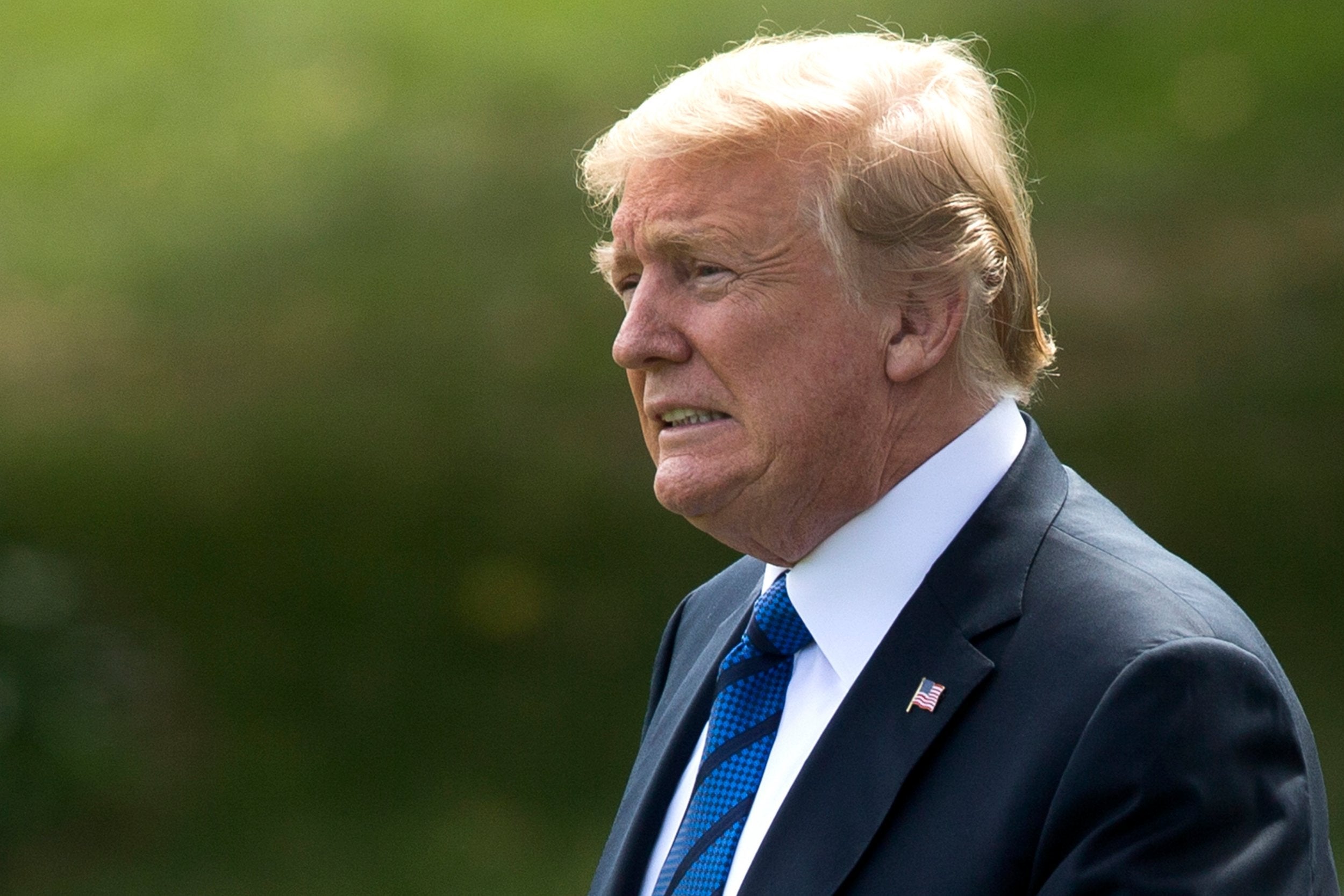What will the US midterm elections tell us about Donald Trump’s chance of a second presidential term?
The Republicans won the struggle to put their candidate on the Supreme Court – now all eyes are on the next electoral test

Your support helps us to tell the story
From reproductive rights to climate change to Big Tech, The Independent is on the ground when the story is developing. Whether it's investigating the financials of Elon Musk's pro-Trump PAC or producing our latest documentary, 'The A Word', which shines a light on the American women fighting for reproductive rights, we know how important it is to parse out the facts from the messaging.
At such a critical moment in US history, we need reporters on the ground. Your donation allows us to keep sending journalists to speak to both sides of the story.
The Independent is trusted by Americans across the entire political spectrum. And unlike many other quality news outlets, we choose not to lock Americans out of our reporting and analysis with paywalls. We believe quality journalism should be available to everyone, paid for by those who can afford it.
Your support makes all the difference.It is customary to describe any imminent set of elections as the most important for the country concerned since a certain date. In fact, the truth is that the midterm elections in the United States in four weeks’ time are probably among the less important such contests in recent history.
Obviously, it matters somewhat to the citizens of 36 states including Florida, Ohio and Nevada, for example, who their state governors will be. Many Americans also care deeply whether their district or their state is represented in Congress by a Republican or a Democrat. And the media is greatly interested in whether the Democrats can gain a majority in the House of Representatives (likely) and in the Senate (not likely).
However, the implications of the votes on 6 November for the next presidential election – which is an important contest not just for America but for the rest of the world – are muted.
From the point of view of journalists, the main significance of the midterm elections is how they affect the prospect of impeaching President Trump. This requires a vote by a simple majority in the House of Representatives, which would be a realistic possibility if the Democrats were to gain such a majority next month. Nate Silver, the statistician who famously predicted the outcome in 49 of the 50 states in the 2008 election and all 50 in 2012, suggests that there is a 75 per cent chance of this happening.
But, as all students of US politics should know, impeachment is merely the first stage of an entirely political process. There is almost no prospect that Donald Trump’s opponents could muster the two-thirds majority required in the Senate to convict the president of “high crimes or misdemeanours”, and to remove him from office.
In which case, the opening of impeachment proceedings would risk looking like precisely the kind of partisan abuse of procedure that is so corrosive of US politics – as the struggle over Brett Kavanaugh’s nomination to the Supreme Court became.
It would seem, however, that the Democrats’ search for a silver lining in Mr Kavanaugh’s confirmation – that it would mobilise their supporters on 6 November – has been frustrated, as an opinion poll suggests that Republican voters have in fact been the more energised by the Supreme Court battle.
As we approach the halfway point of Mr Trump’s first term, the state of public opinion remains surprisingly hard to read. The president’s approval rating at this stage is not very different from those of presidents Reagan, Clinton and Obama, all of whom were re-elected, or of presidents Ford and Carter, who were not.
The real importance of these elections, therefore, might lie in their implications for the field of Democratic contenders vying for the right to take on Mr Trump in 2020. Kamala Harris, the California senator who is favourite for the nomination, raised her profile in the Kavanaugh hearings, and these elections might push other candidates forward, such as Beto O’Rourke, who is challenging Ted Cruz as senator in Texas.
That Mr Trump has a realistic prospect of re-election in two years’ time is surprising to most British eyes, but the evidence suggests the chances of a second term for Mr Trump are evenly balanced. For that reason alone, every aspect of the vote on 6 November deserves to be reported and analysed for the clues it might offer for the future of the US and the world.
Join our commenting forum
Join thought-provoking conversations, follow other Independent readers and see their replies
Comments